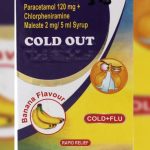India Implements Ban on Anti-Cold Drug for Children: A Response to Global Cough Syrup Contamination Crisis

India has taken a significant step to address the alarming issue of child deaths linked to contaminated cough syrups by banning the use of an anti-cold drug combination in children aged below four. The move comes as the country grapples with the aftermath of at least 141 global deaths associated with toxic cough syrups, with cases reported in Gambia, Uzbekistan, and Cameroon since the middle of the previous year.
The decision by India’s drugs regulator revealed on December 18 and made public on Wednesday, not only prohibits the use of the fixed-drug combination (FDC) containing chlorpheniramine maleate and phenylephrine in young children but also mandates drugmakers to label their products with a clear warning against using the FDC in children below four years of age.
The concerns prompting this regulatory action were rooted in the promotion of an unapproved anti-cold drug formulation for infants. Authorities have linked at least 12 child deaths in India to domestically-made cough syrups in 2019, with an additional four children left with severe disabilities. This tragic pattern of incidents has raised questions about the quality of drug exports from India, a country often referred to as the “world’s pharmacy” due to its role in supplying life-saving drugs at affordable prices.
In response to the rising concerns, the World Health Organization (WHO) has consistently advised against the use of over-the-counter cough syrups or medicines for treating coughs and cold symptoms in children under five years old. India has taken proactive measures, implementing mandatory testing for cough syrup exports since June and intensifying scrutiny of drugmakers.
It’s worth noting that drug makers whose cough syrups were implicated in child deaths have denied any wrongdoing. This development underscores the importance of stringent regulatory measures and global cooperation to ensure the safety of pharmaceutical products, especially those intended for vulnerable populations like children.





